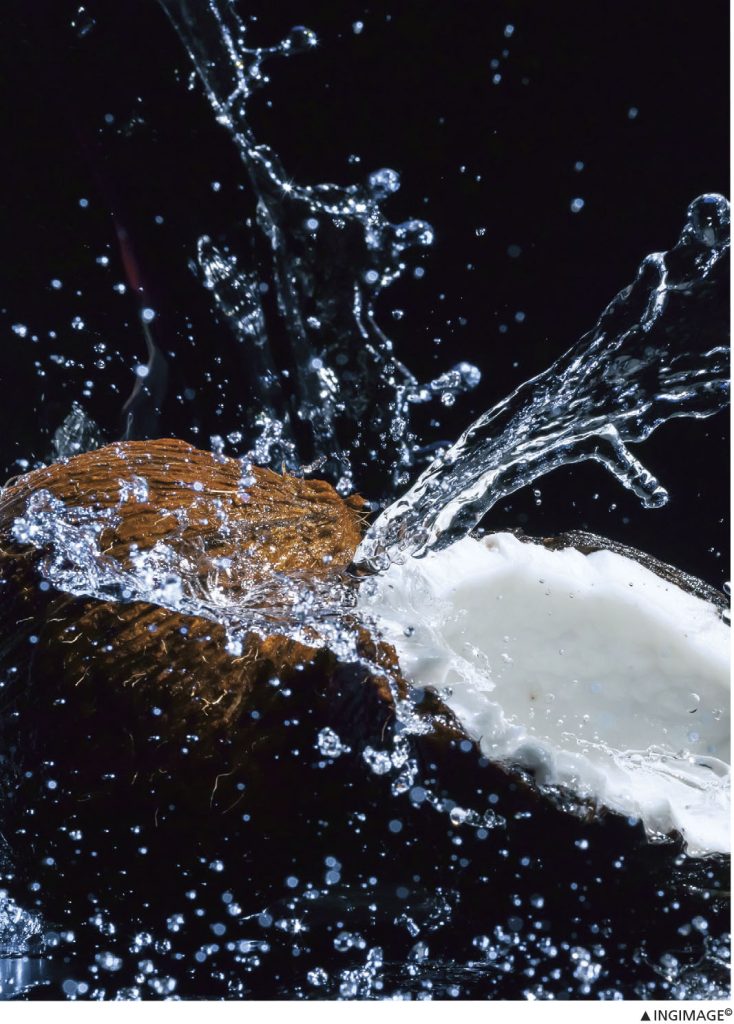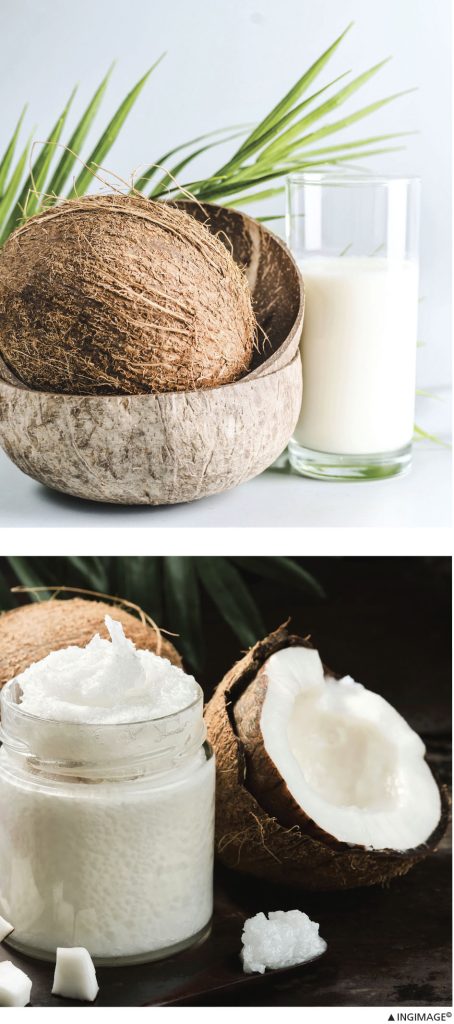CRACKING GLOBAL MARKETS
Nayana Ranatunga calls for new strategies for Sri Lanka’s coconut industry

Sri Lanka’s coconut industry is one of the country’s oldest and most important agricultural sectors; it contributes to rural livelihoods, export earnings and domestic consumption, while ranking among the top global exporters of coconuts and coconut based products.
However, the industry now stands at a critical juncture.
“Despite its rich heritage, decades of expertise, access to premium raw materials and a diverse product portfolio, a concerted effort is needed to modernise plantation infrastructure and proactively address the challenges posed by climate change,” says Nayana Ranatunga.
There remains ample scope for innovation and efficiency improvements.
“More importantly, the industry’s market strategies must be reassessed. Instead of spreading our finite raw material supply across all available markets, we should focus on key premium destinations,” she opines.
When it comes to market readiness, “local manufacturers are well equipped with technical know-how, world-class facilities and a commitment to maintaining international quality standards,” Ranatunga asserts.
She continues: “It is encouraging to see that the mindset of striving for excellence to deliver the best possible output is embedded across many manufacturing operations, enhancing Sri Lanka’s reputation among global trading partners as a reliable port of origin.”
Notably, the industry’s product portfolio is diverse and continues to evolve with global demand.
“Globally, demand is being driven by several key trends including the rise of plant based diets, interest in natural health products, and a growing preference for sustainable and ethical sourcing,” she notes, adding that “coconut milk, flour and snacks, and plant based dairy alternatives, are gaining traction.”
Sri Lanka possesses both the raw materials and processing expertise required to meet evolving demand. However, as a country, “it needs to enhance global marketing efforts and strengthen the narrative around ethical sourcing, sustainability practices and supply chain traceability to fully capitalise on these trends,” Ranatunga asserts.
“Value added coconut products hold the greatest promise. Virgin coconut oil, coconut milk and snacks, activated carbon from shells and even coconut based cosmetics are rapidly gaining popularity,” she reveals.
The functional food and wellness sectors are particularly strong growth areas. While raw exports will always play a role, the real opportunity lies in high margin branded products tailored to niche markets such as vegan, gluten-free and organic consumers.
Indeed, the industry can and should further differentiate its coconut products on the international stage – especially in branding and quality perceptions.
“We must upgrade from being a commodity supplier to a provider of premium, ethically sourced, supply chain traceable and value added coconut products. This requires unified national branding, strict adherence to international quality standards, and compelling storytelling about our heritage, sustainability, unique taste and community impact,” she stresses.


Organic, fair trade and food safety certifications, along with transparent supply chains, can greatly enhance perceptions in the international market.
SMEs are the lifeblood of innovation in this industry and often lead the way in niche products, experimentation and value addition. However, access to affordable financing, lack of global market intelligence and difficulty in meeting international compliance requirements are major hurdles.
“Strategic mentorship programmes, export incubation centres and access to shared processing facilities could greatly empower small and medium-sized enterprises to scale up globally. Technology transfer is usually sporadic and often limited to larger players. A coordinated effort between the government, private sector and academia is needed, to provide affordable financing, R&D support and technical training,” Ranatunga points out.
Value addition should also be accelerated with the aim of reducing dependence on traditional raw exports.
She elaborates: “Value addition should be incentivised through tax relief, export subsidies and easier access to machinery. Encouraging vertical integration – i.e. where processors are also involved in cultivation or own their supply chain – can increase profitability and efficiency. Lastly, knowledge sharing through industry forums, innovation hubs and trade missions can expose producers to global trends and inspire diversification.”
Furthermore, expanding bilateral trade agreements and leveraging diaspora connections can help break into key markets more effectively.
Ranatunga explains: “The EU and North American markets have untapped potential, especially for organic and specialty coconut products. Emerging markets in the Middle East, South Korea and Eastern Europe are also showing an increased interest in plant based and tropical products.”
Public or private sector support is essential to unlocking the full export potential of this industry. The government must prioritise infrastructure upgrades, simplify export regulations and provide consistent policy support. Export credit facilities, grant schemes for R&D and national marketing campaigns are high on Ranatunga’s wish list.
Meanwhile, she believes that the private sector should invest in quality systems, workforce development and sustainable sourcing. A collaborative approach involving all stakeholders is the key to industrywide growth.
“Sustainability is a prerequisite in many markets. Buyers are looking for traceability, low carbon processes, ethical labour practices and environmentally friendly packaging,” Ranatunga notes.
Much remains to be done to ensure industry sustainability: greener technologies, organic farming practices and improved transparency across supply chains are essential, in order to meet the expectations of premium buyers and unlock new high value segments.
